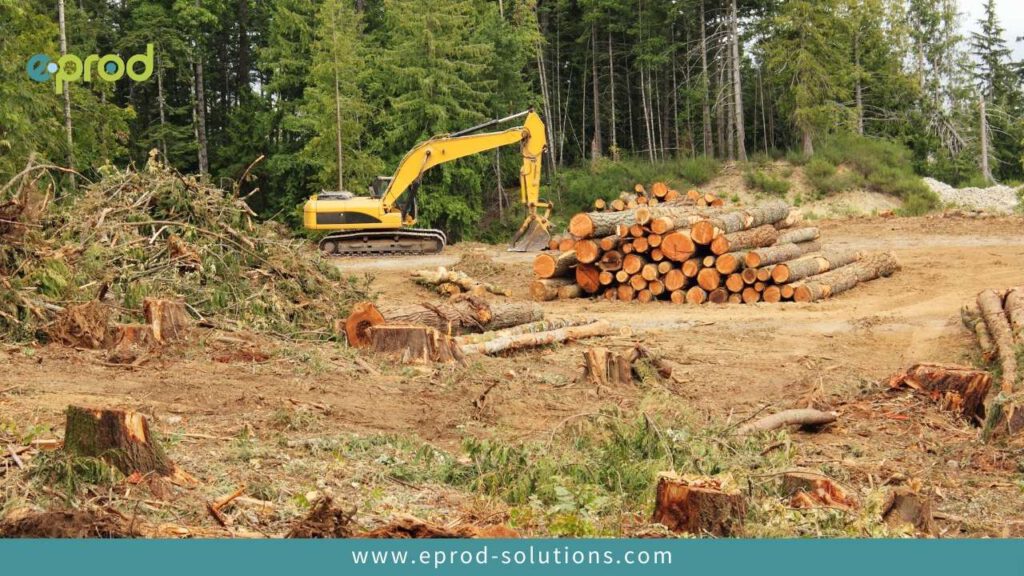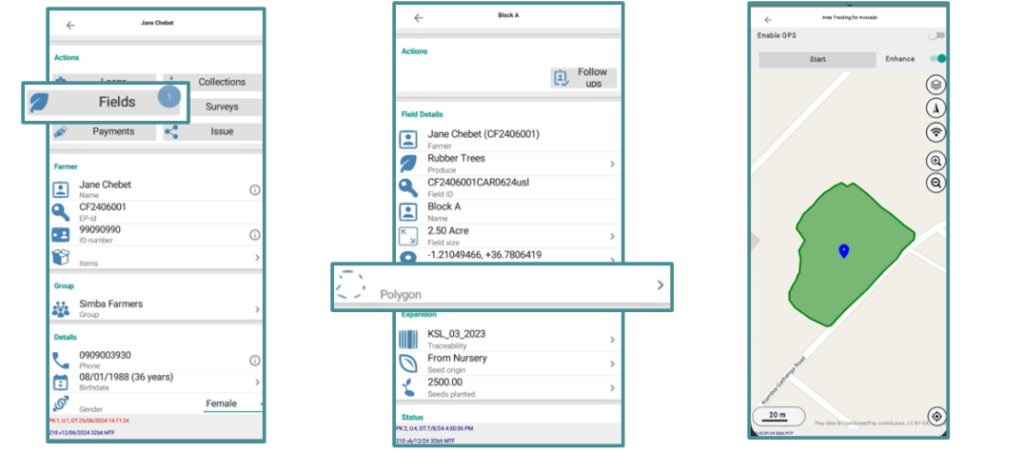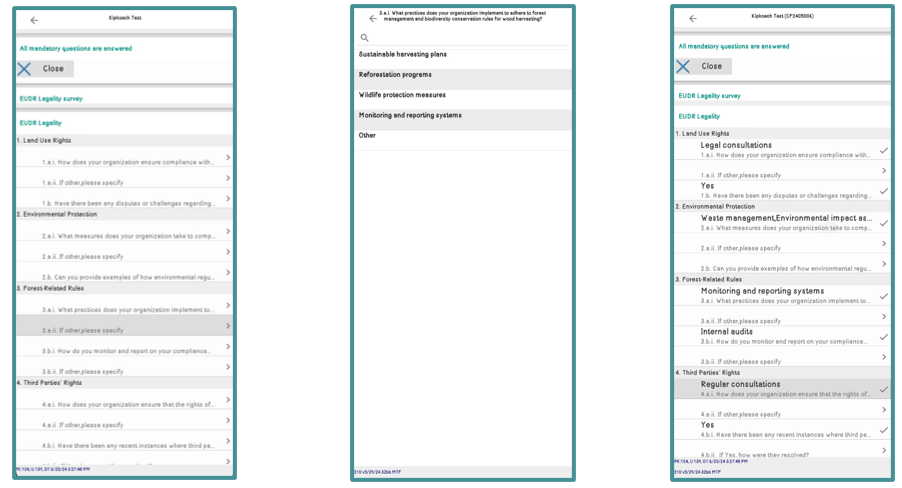
The European Union Deforestation-Free Regulation (EUDR) is set to change the way agribusinesses source and sell their products in the EU market. But what does this mean for companies dealing with commodities like cocoa, coffee, soy, palm oil, wood, rubber, and cattle?
To comply with the EUDR, businesses must prove that their products are sourced in a deforestation-free way. This means that any product must come from land that hasn’t been deforested since December 31, 2020. If a company fails to comply, they could face hefty fines up to 4% of their EU turnover. Beyond financial penalties, there’s also the risk of negative publicity that can damage a company’s reputation. In some cases, violations might even lead to the confiscation of products or revenue. In addition, for the exporting party this could mean that their production area will be moved to a high-risk area, requiring additional due diligence information.
How eProd can help your agribusiness comply with the European Union Deforestation Regulation (EUDR)
As the EUDR deadline approaches, it’s important for businesses to stay informed and prepared to meet these requirements. eProd has recently been recognized by both DIASCA as well as International Trade Center (ITC) as one of the selected EUDR service providers (read more in the ITC handbook here).
Our platform provides practical tools to help agribusinesses demonstrate compliance. Here’s how we can support your business:
Farmer polygon registration
The EU Deforestation Regulation (EUDR) mandates that operators and traders collect geographic coordinates for the plots of land where commodities are produced. By linking products to exact locations, businesses can prove that the commodities are sourced from land that has not been deforested after a specified date (in this case, December 31, 2020).
eProd simplifies this process by enabling agribusinesses to map their products to individual farms and fields using GPS coordinates or polygonal data. These polygons define the perimeter of each plot, ensuring accurate traceability of crops back to their origins and making it easier to verify compliance with deforestation-free requirements.

Farmer Legality Checklist and Due Diligence reports
Under the EUDR, operators must submit a due diligence statement to the EU register, along with documentation that confirms a thorough assessment of their supply chain for risks related to deforestation or forest degradation. This statement acts as a formal declaration of the company’s responsibility for its sourcing practices. eProd simplifies this process with interactive reporting features that enable the generation of detailed due diligence reports. These reports include information on product origins, cultivation methods, and compliance with regulatory standards, making them essential for demonstrating that products are sourced legally and sustainably. Additionally, agribusinesses can use tailored surveys to gather data from their farmers, allowing them to collect specific information based on their organizational needs.

Traceability and Transparency: Due Diligence Statement
The European Union Deforestation Regulation (EUDR) highlights the importance of traceability to ensure that products sold in the EU do not contribute to deforestation or forest degradation.
Thus, the most important requirement for exporters and importers in the EUDR compliance process is the generation of the so-called Due Diligence Statement. This statement is a combination of general batch information concerning the traceability code, the weight and units exported, date and the information of the fields from which this product has been harvested. Specifically, this means that companies need to be able to link every export batch to the individual field locations or polygons adding additional attributes like the kg harvested and the harvesting date. This data needs to be uploaded into the EU platform for verification and generation of a unique importation code.
With eProd, businesses can achieve complete traceability from farm to table. Every step in the supply chain is tracked, ensuring that products meet the EU’s deforestation-free standards. The system allows businesses to trace the origin of produce and connect it to both the farmer and the specific field it was grown on.
In one notable case, see how eProd successfully provided complete product traceability for saffron through its supply chain management solutions for agribusinesses in Afghanistan.
Consent Sharing
The eProd system goes beyond traceability by ensuring that farmers have control over how their data is shared. As businesses work to meet the EUDR requirements, which involve collecting and storing detailed geographic and production data, respecting the privacy and consent of farmers becomes essential.
eProd enables agribusinesses to obtain and manage consent from farmers on how their personal and farm data is used and shared. This ensures transparency and builds trust between the business and its suppliers.
The eProd software offers a range of services in 22 countries and over 50 different sectors, and when it comes to EUDR compliance, it provides powerful tools to ensure that agribusinesses meet traceability requirements. From mapping farms to tracking product origins, eProd helps businesses stay on top of regulations while maintaining transparency throughout the supply chain.
Ready to see how eProd can support your business with EUDR compliance? Contact us at info@eprod-solutions.com to schedule a FREE demo.

I am working on sustainability. One of the things my organization does is to support Ethiopian exporting companies in terms if EU ENVIRONMENTAL Regulations. My question is how can I be your partner?